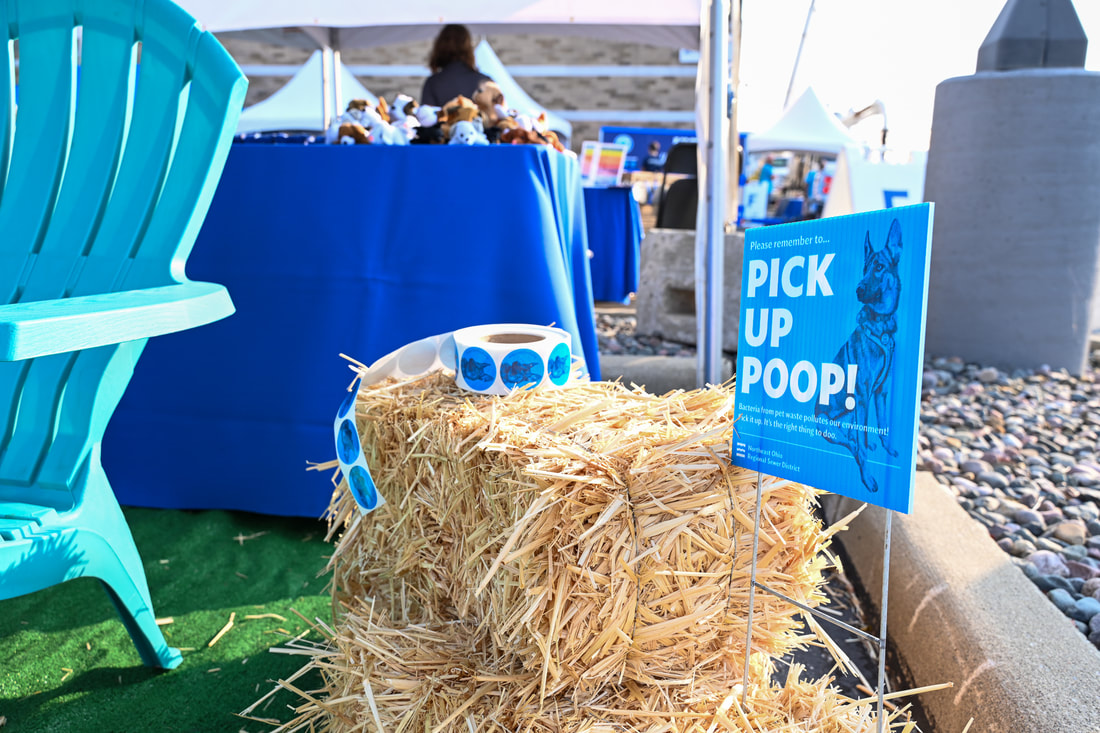Water quality, common courtesy.
Dog droppings can impact our groundwater, streams, and lake. When it rains, bacteria from doggie doo can soak into groundwater, or be carried by rainwater to storm sewers which carry the flow to nearby streams. In both cases, the water is not treated at a wastewater treatment plant, and that's not good for the environment.
Picking up after your pet is the simplest way to protect water quality and be a good neighbor.
Picking up after your pet is the simplest way to protect water quality and be a good neighbor.
Let's talk dirty.
There are more than 90,000 dogs in Cuyahoga County. If each dog poops twice a day, that could be more than 45 tons of doggie droppings every day! That's a lot of bacteria, and when it rains, that groundwater and surface runoff carries that bacteria to local waterways. Yuck. Cleaning up after your dog is a simple step you can take help keep my watershed clean and waterways free of harmful bacteria.
Bag it.How is bagging my dog's waste any better? "Isn't that still garbage in a landfill?" The answer to that question is yes, but it eliminates the direct contribution of bacteria to local waterways (not to mention, it's simply the polite thing to do when walking your dog around the neighborhood). And biodegradable bags do help the situation further.
But besides bagging, there are even more eco-friendly options, such as in-ground pet waste composters, including some you can create yourself. |
Bac factsA few bacteria facts for you: Due to dogs' high-protein diets, their waste is highly acidic. It is not a fertilizer and can contain 10 times as much fecal coliform bacteria as cow manure, and also a whole lot of nasty stuff like e. coli, salmonella, and giardia.
|
Request a yard sign
Our "Pick Up Poop" yard signs can be seen on lawns and lots across Cleveland, Ohio, and even around the country. Request your own.

